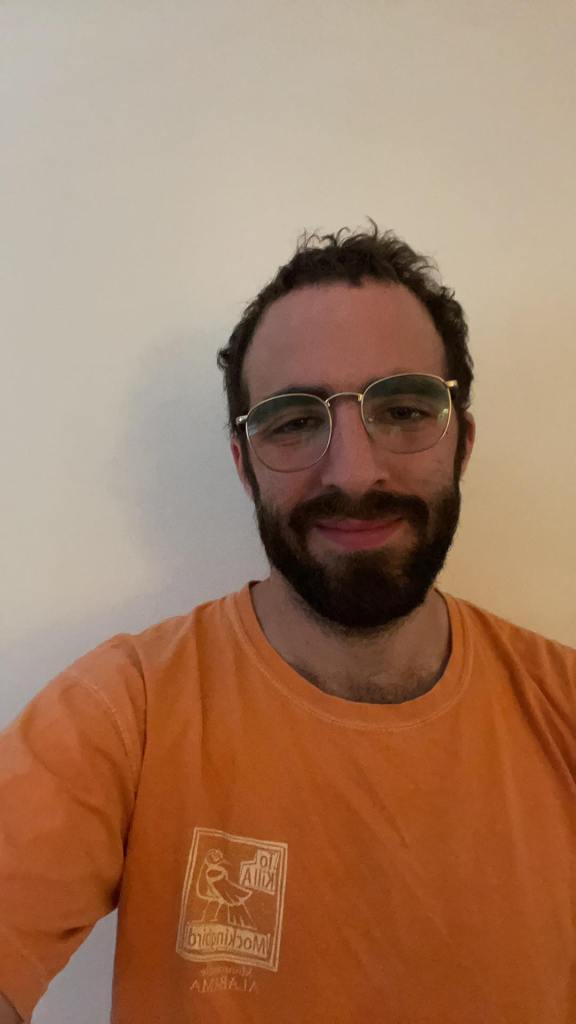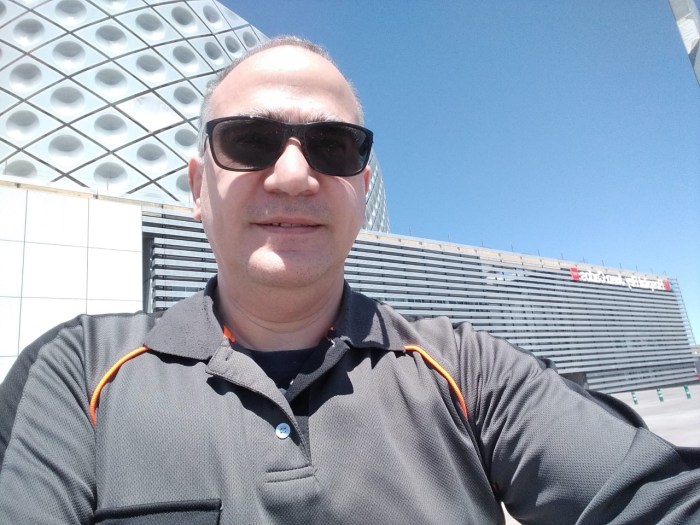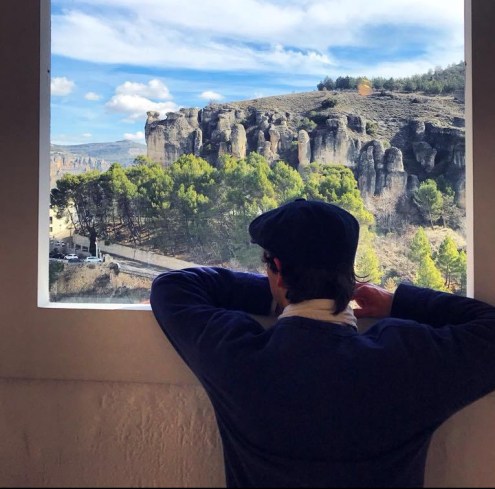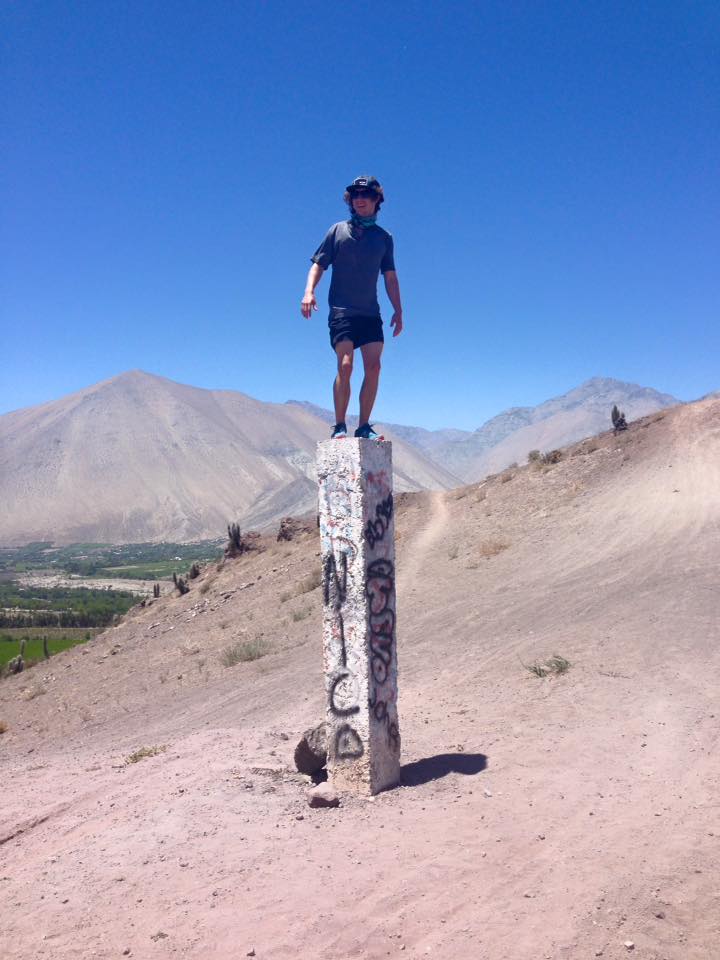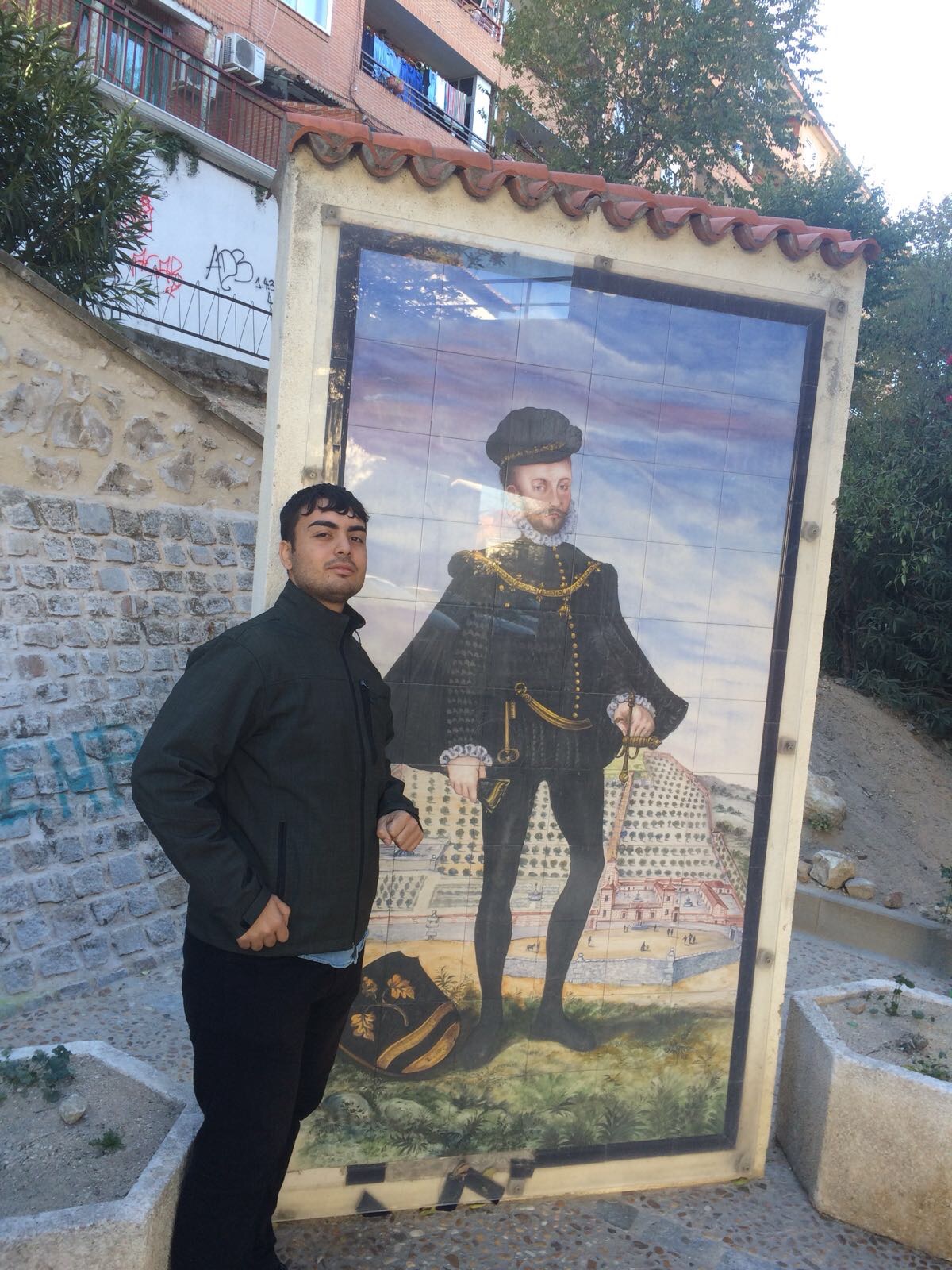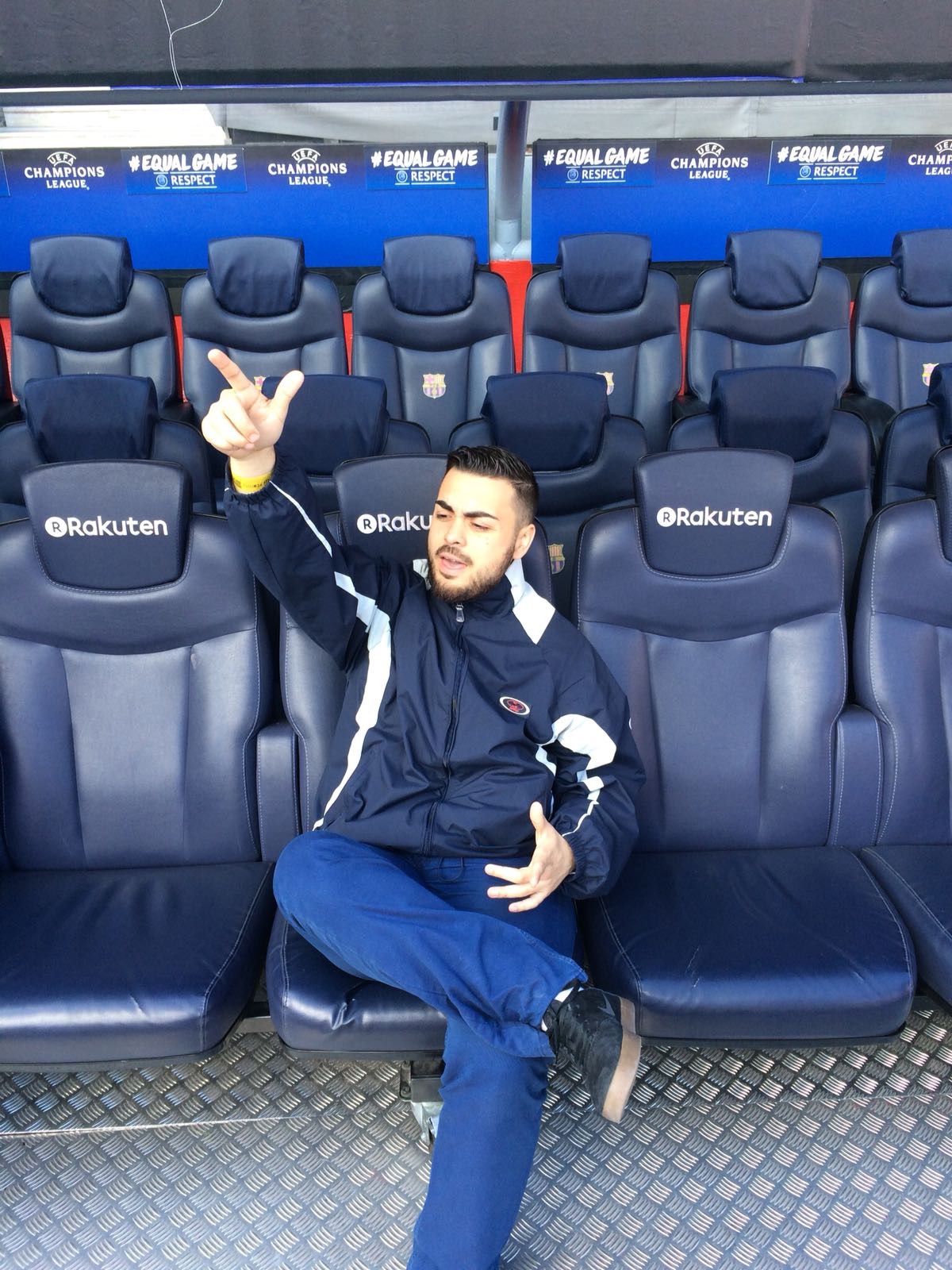The title image is of my brother (left) with Greg in Marseille.
Greg Valdespino is one of my oldest and best friends. But this doesn’t mean we were always friendly. We began our friendship competing for the best grades in class. For a while I was on top (I’m good at exams), and I wasn’t afraid to brag. But in high school, Greg shot forward, and it was his turn to rub it in. Greg quite dramatically won our long competition by graduating third in our class and going off to become a true scholar. (I wasn’t either 1st or 2nd.)
Now that we’re adults—or trying to be—Greg has become an even better friend than before, in part for his rare ability to be simultaneously serious and silly. It is difficult to combine a strong sense of what is right with an ability to laugh at oneself, but Greg somehow manages it. He also manages to make me feel like I don’t know the first thing about history. Here’s our conversation:
ROY LOTZ: Can you give me some description of your education? Do any professors or classes stand out for special mention?
GREG VALDESPINO: I went to public school in Sleepy Hollow, from Kindergarten to twelfth grade. And I do remember most of my history teachers from this time. There are phrases and quotes of individuals I remember about why history is important to them.
But the big influence was Ms. Heskestad, who was my eighth and tenth grade teacher, who was a foundational, educational figure in my life. She really kind of let me deeply geek out and engage in history, as something you can really get obsessed with, making history the big thing I pursued. (And of course she’s French, and I’m a sucker for France.) I would even go to her office every day before school—or once or twice a week at least—and just talk about the readings that we had for AP European History. And I don’t know why she let me do this, but I did. She had better things to do with her time.
Then, after Sleepy Hollow, I went to Stanford for four years. At first I was hesitant to do history, since I didn’t just want to do the thing that I was really good at in high school. And I took a history class on medieval Europe and I hated it. Or I loved it, but I was really bad at it. It was at 9 a.m. and I kept falling asleep. And the professor slapped the table pretty frequently to wake me up. (It was a twelve-person class, so it wasn’t like I could be hiding in the back.) And since I was always the last person to arrive to class, I would have to sit right next to the professor, so he’d be in the perfect position to slap the table. It was not a great introduction to higher learning.
But then I took a class while I was studying abroad, with professor Caroline Winterer, who is a historian of American intellectual and cultural history in the eighteenth century. She did a class on French-American connections since the colonial period. And it was just spectacular. She had this marvelous, beautiful way of using history to reveal the complexity of the past, and the impossibility of pigeonholing past actors, and the astoundingly complex ways that they thought about their world, and that the ways that they thought evolved over time and produced the way we think… And she gave these beautiful lectures about construction of forms of knowledge and ways of approaching the world. I didn’t think it would be so moving, but it was.
Then I got the chance to do my own research in France, where after studying 18th-century intellectual history, I was in this village, talking to people about memories of World War II. To go from an intellectual approach of history to people’s actual relationships with the past—two different ways of looking at history—was a kind of master-class in the subject. So after that I was totally committed to being a historian. Within a year, I went from “Do I want to major in this?” to being like “I want this to be my life.” Even though Caroline Winterer kept telling me that it was a bad idea.
There’s a thing Rabbis do with converts, where they have to push them away three times to find out if they’re really committed. And the first three times I told Professor Winterer I wanted to go to grad school, she admonished me about how terrible an idea that was, and how awful grad school is, and how I’ll never get a job. Then, only by senior year, the fourth time I did it, she started making a game-plan.
I finished Stanford with a history degree, knowing that I wanted to be a historian. After two years off, I started a Ph.D. in history as the University of Chicago, where I work under Leora Auslander, who is a historian of modern Europe, and Emily Osborn, who studies social history and history in West Africa. And they are glorious, and they are very different, and very wonderful.
RL: Why did you choose history as opposed to any other discipline?
GV: I think I started studying history because I was interested in stories. And I found real stories more interesting than fiction. I thought that looking at past events was an interesting way of understanding humanity, and “the human condition” (except that the longer I studied it I realized I don’t believe in anything called “the human condition,” or if I do it’s very qualified).
As I go through my Ph.D. I think less and less that the reason to study history is stories—even though I love stories—and instead I think that we study history to understand the formation of ways of being and thinking, and how they emerged and evolved and changed over time, and how they’re always doing it.
One of my advisors says that “history is the study of change over time.” And we’re always within that. We are the inheritors and the products of change over time, but at the same time we are also producing and participating in that flow of new changes. So it’s a way of viewing the world that’s in constant flux. And there’s a humility to that which I appreciate. It gives me the ability to think beyond the moment. Or at least try to.
RL: What are some of the books—both academic and non-academic—that inspire you the most?
GV: In high school, one summer, I read both King Leopold’s Ghost by Adam Hochschild—about the Belgium Congo (spoiler alert: it was bad)—and Things Fall Apart by the Nigerian writer Chinua Achebe. So it’s two very different—not complementary—perspectives on how to think about colonialism in Africa. I think that was the first time I ever thought about the history of Africa in any serious way.
In college, the most important book I read was probably The Wretched of the Earth, by Franz Fanon. As far as my intellectual trajectory goes, this book was foundational.
RL: That’s about colonialism right?
GV: Yeah, he’s a psychoanalyst thinking about the consequences of colonialism for black men—and it’s very much about black men, not at all about black women, very misogynistic. It’s a classic psychoanalytical, existentialist approach, like “the black man is created by the white gaze”—these things that have become very common knowledge now. But he was one of these pioneering thinkers. He was one of the main intellectuals of decolonization. So reading that was like a bolt of lightning. And I remember in my class of 90 people only one other person liked it (who now studies black radical thought) because Fanon advocates violence as a form of self-affirmation. It’s a very controversial book. And I bought into it, immediately.
There’s a wonderful book called Affective Communities, by Leela Gandhi, where she talks about the relationships between South Asian and British radicals in turn-of-the-century London. And she looks as vegetarians, spiritualists, anti-colonialists, homosexuals, and how they were imagining different kinds of political relationships that weren’t about similarity. Where the basis of political community isn’t forming bonds with people who are like you. And she has a wonderful theory of political action, rejecting identity politics in the sense of communities formed to include people like us and exclude others.
Then there’s this awesome book by James H. Sweet, called Domingos Álvarez, and it’s a micro-history, a history of one person. It’s based on these inquisition files for this guy who is from what is now Benin. He’s kind of magical healer who gets enslaved and sent to Brazil. But he eventually gets freed, and he becomes a healer in a community in what is now Rio de Janeiro. Then he gets accused of witchcraft, captured by the Inquisition, and sent to Lisbon in the 1760s. There he’s interviewed, producing hundreds of pages about his life. Sweet’s book is an astounding intellectual biography of him, and his efforts to use his medicinal practices to form a community and resist the social death of slavery. It’s a beautiful resurrection of a man’s life, but it also opens up a way for us to understand African intellectual traditions in the creation of the modern world.
RL: What qualities do you think a good historian should have?
GV: A good historian definitely needs patience and the persistence to get through archival work, which is often extremely boring. They need to be simultaneously self-critical and confident. Self-critical, in order to not just use their own biases to explain the past. But confident, to believe that they are saying something worth discussing. And they need to be endearingly excited about things. Without irony, and without a need for an audience.
RL: Is there one worst intellectual sin that a historian can commit?
GV: I mean the classic answer is an anachronism, of course. That means using a term or a logic or a conceptual framework of the present to explain the past. It’s a sin because it doesn’t do service to actually explaining the past or its relationship to the present. But of course some people, including myself, believe that we shouldn’t separate the present from the past, because we really can’t escape the present or put it aside. But the anachronism is the classic great sin of historians.
But I think the real great sin is looking for documents and evidence that feed your pre-existing theory as opposed to letting your theory emerge from the evidence. That you don’t go into an archive knowing what your argument is going to be. Your argument emerges from the research. Otherwise, you just do bad work. You won’t move knowledge forward in any meaningful way. Of course, it’s the same problem in any kind of research, and it’s extremely difficult not to do this, at least a little bit.
RL: How do you think history should be taught at the university level?
GV: I think that it’s important to assign a combination of secondary and primary sources. People need to get excited about engaging with the objects of the past. And you need to give them direct access to the words of people who came before us. But if you just give them those words, images, or objects without any framework, then people will have no ability to understand how exciting they are, beyond just “This is cool!”
You get them in with the coolness, with the story, but they become historians by learning how to analyze it. The most important thing is to teach people that history is a debate, and an analysis, and they have the right to do that analysis, to be historians, to debate it. As opposed to a high school style, which is “Here is the narrative.” People need to be given permission to make the narrative. And in order to do that they need to have access to both the data points and the broader debates.
RL: But do you think there’s a danger to this, in a sense that it gives people the license to write history to reinforce their own preferred narratives?
GV: I’ve gone past my postmodern crisis in college. Obviously all positions are personal and subjective. But that doesn’t mean that some positions aren’t more accurate than others. You need to ground historical study in evidence. Everyone has a right to be a historian. But in order to be a historian, you have to work with the sources, you have to do the analytical work. And if I can prove you didn’t do the work, or I have contrary evidence, I can disprove you. That’s what makes it different from story-telling.
RL: Can you describe some of your doctoral research?
GV: The basic question of my dissertation is: When, where, and why did West Africans’ ability to feel at home become a political and social issue in France and Senegal in the 20th century. So essentially what I’m asking is: When did individuals’ ability to feel physical senses of comfort and social senses of belonging within certain spaces become central to certain people’s understandings of broader social and political debates. What role did these debates play in colonialism? And how does studying this allow us to rethink our understandings of colonial cultures and ideas of segregation, separation, unity, and multiculturalism in the 20th century?
RL: Can you tell us something about how you went about researching it?
GV: I’ve done archival work in France and Senegal. I did a year in France and about three months in Senegal, and I’ve spent the past year writing. The archives were mostly government archives: the National Archives of Senegal, the National Archives of France, the Colonial Archives of France, various regional archives in France, a few archives of housing agencies, or police archives. I’ve done some oral history, I’ve spoken with some nuns and missionaries. So I’ve gone all over looking at textual sources, a lot of photographs, films, novels.
RL: What kind of textual sources were they, exactly?
GV: It can be anything from a police file, to a census record, to shipping inventories. A problem is a lot of my actors aren’t literate. So even though I would love to have more letters—and I have a good amount—they mostly aren’t there. And they didn’t end up in government archives all the time, for obvious reasons. But I do have a lot of soldiers’ letters that were intercepted by censors. I have letters that individuals wrote to state officials when they were either trying to get support after their homes were destroyed by the state, trying to get support for community centers, trying to get interventions in insalubrious housing. But I don’t have a ton of interpersonal letters, unfortunately.
Each chapter in my dissertation is oriented around a specific kind of space that was seen as a solution to, or the cause of, the problem of how to make West Africans feel at home. And a big source-base for pretty much every chapter are inspections or plans of those spaces. Those can be textual inspections but also drawings, blueprints, photographs, audiovisual records, interviews with residents… it runs the whole gamut.
RL: How do you approach writing up your research? What are you trying to accomplish?
GV: I’ll answer the second part of the question first, because I think it’s harder. Basically, I’m trying to make an argument—that’s the core. An argument that allows us to view something in a new way. The structure of my dissertation is it moves chronologically from 1914 to 1974, and each chapter is about a different time and place. So I’m trying to use home as a lens to reinterpret a certain period that people have been studying. I want to make an argument that allows us to see something in a new way. And which allows us to see West Africans and their sense of belonging as essential to this time period.
On the whole, I’m trying to produce a new understanding of empire. People say that empire is always predicated on distance and separation, and that’s true in many ways. But closeness is also a central part of empire. The paradox of empire is that it’s an entity that is predicated simultaneously on unity and division, which is very counterintuitive to our understanding of politics. So the reason empire’s didn’t work is that they’re based on the politics of differentiation when politics is supposed to be based on similarity.
But for so many people this wasn’t a paradox, and so many West Africans and French people were trying to think of make this distance and closeness work politically. So I’m trying to produce a new understanding of empire that acknowledges that, for many people, the distance did not preclude it from also being intimate. And I don’t mean “intimate” in the sense of sex, I mean that you can bring these political structures close into your life. That’s my overall argument—changing our ideas of empire and why it worked or didn’t work in certain moments.
As far as when I’m writing—a totally different question, I suppose—it’s about getting all of those little arguments in each chapter that will get me to the big argument. And in the process, the first phase is what I call “word vomiting”: just write, write, write. Get all the quotes from all the sources I think are relevant and then I just kind of stream-of-consciousness analyze them. I kind of arrange them roughly into a sequence I think might be interesting, but I don’t really know what I’m going to say about them when I start writing. I write about them, and write around each of these quotes, until I get to an end.
And that’s the first draft. It’s usually about sixty pages of absolute gobbledygook. And then I ask: What’s the argument here? And then I spend weeks trying to craft an argument out of that word vomit. So I imagine vomiting onto my computer and then scrubbing it away, until I get to the argument that was underneath the vomit.
RL: Just like Michelangelo. You remove every part of the stone that doesn’t look like a beautiful sculpture. Just like you remove every part of the vomit that doesn’t look like a dissertation.
GV: Beautifully put. I even have a separate word document that’s just called “Scraps,” because I find it much easier to delete things if I know they’re going somewhere and not just being deleted.
So, basically, the writing is the thinking. You can’t think without writing—or at least I can’t. That means that you’re going to do a lot of crumpling up paper and throwing it away. But you have to write down those thoughts first
I try to get a good chapter draft done in 4-6 weeks. When I’m in the writing phase, I write about 4 hours a day. So with that pace, by the end of a few weeks, I should have a pretty solid chapter draft that has gone through 2 or 3 revisions. My goal is to have six substantive chapters and an introduction and a conclusion. Each chapter is about 40 pages. So, pretty thick.
RL: More broadly, why do you think it’s important for society to have good historians?
GV: I was thinking about this, because we had a round-table for the history department, examining COVID-19 from a historical perspective. And I think what a historian can contribute is narration. Not storytelling, but an analytic narration. Because the way we narrate the past determines the lessons that we draw from it.
So, for example, if the narration of the coronavirus crisis is: “There was a problem in 2020 and science solved it,” then this will overlook the months of social and economic dislocation that occurred before a vaccine was (hopefully) found. Rather, we need to emphasize that long-term changes in our economy and social structure made us vulnerable so that, when there was a disruption that required time to develop a technical response, we weren’t able to handle it. The lesson we draw then isn’t “Make a technical fix,” but “Make a technical fix, and design the economic and social infrastructure that can handle the time in-between the appearance of the problem and the solution.”
That’s just the COVID example. The way that you narrate the way that something happened completely structures how you move forward into the future.
RL: So do you think that history is about learning from our mistakes?
GV: To some extent it is learning from our mistakes. But what does that really mean? We can say “We know slavery is bad,” but the bigger question is “Why did slavery emerge?” In fact, slavery is the rule, historically. It’s only the last two hundred years where it’s been banished from certain parts of the world.
So I do think learning from our mistakes is important. I don’t think that history is bound to repeat itself. That’s not how the world works. History echoes, maybe, but it never repeats. So we learn from our mistakes, but we need to understand why those mistakes occurred. Because many of the structures that created those mistakes in the past are still with us.
But to make another point, we should also learn that there were roads not taken in history that maybe we should try to take. That’s a big part of what I do. Part of the reason I study empire and the way people tried to make empire work at home is because now we have the narrative of the failure of multiculturalism in Europe. But I’m part of a group of historians who say that there were people who tried to make empire work by trying to imagine a society that wasn’t premised on similarity, but difference, and that difference wouldn’t be an obstacle to solidarity and unity. Why did that vision fail? And how could we resurrect that vision?
The historian E.P. Thomson said that we must save the past “from the enormous condescension of posterity.” The people in the past were not worse or more foolish than we are, and we aren’t smarter than them because we came after them. We can learn a lot from them. And we can be better by trying to be more like them in certain ways. That’s what I dislike about a lot of liberalism and a lot of progressive politics is that there’s always a move “forward.” But some things might have been better in the past.
A great example is that living in multi-generational housing might actually be better. And that used to be the norm. I think we’ve lost a lot. History is not progress and it’s not loss. It’s loss and gain. We need to understand what we’ve lost and try to resurrect it, or at least get it back in some way.
And the last thing I like about history is that historians don’t panic as much. Because we know that human beings have survived horrible things. Not individuals, of course, but humanity. Historians have the benefit and advantage of seeing things in the long term. Horrible things happen, but I think historians are less crisis-prone. Or maybe just I am. Even in wars and holocausts, people survive—and I mean people with a capital “P.”
So there’s analytic narration, there’s learning from the past, and there’s the ability to avoid crisis-thinking. Because we don’t think well when we think in terms of crises.


